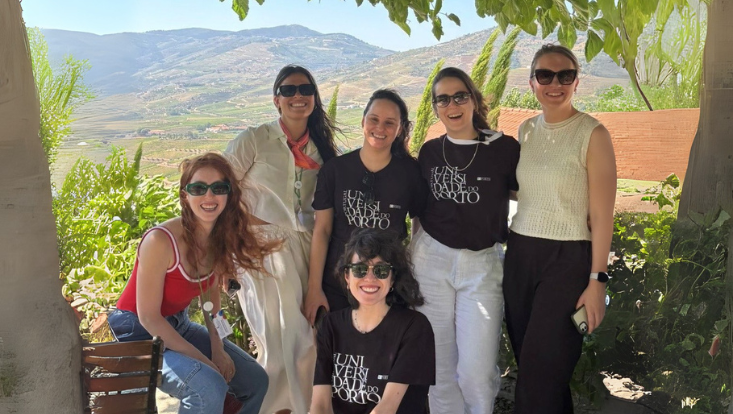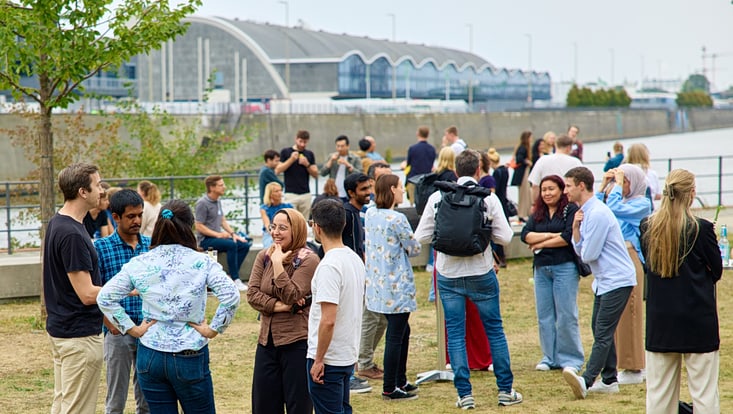30. Juli 2025

Foto: private
Participants of the EUGLOH program in Porto.
From July 7-11, the second edition of the EUGLOH program "Making an Impact: Skills for Career Paths in and Beyond Academia” took place in Porto. 28 researchers from across Europe gathered for this week-long program, designed to support doctoral candidates in enhancing their professional skillset, learning how to create effective impact, and expanding their international networks. One of the participants, Clara Stein, doctoral researcher at the UKE, shares her experiences:
What field of research do you come from and what is your PhD topic? How is it related to global health in the broadest sense?
I come from the field of psychosomatic medicine and my PhD focuses on the long-term effects of COVID-19, often referred to as Long COVID. In the broadest sense, my research contributes to global health by addressing the complex interplay between mental and physical health in the aftermath of a global pandemic. Understanding and improving care for patients with persistent symptoms is a challenge faced worldwide, making collaborations between different disciplines, health care systems and health care providers extremely important.
Why were you interested in and applied for this program? Did your supervisors support your participation?
Coming from a psychosomatic background and working on Long COVID, I was curious to see how researchers from other fields approach complex, real-world health issues. The program promised an international and interdisciplinary environment, which I found very appealing. My supervisors supported the idea from the beginning, recognizing the potential for both academic and personal growth through such an exchange.
What did you learn about “Making and Impact” and career planning during the program? Why was it beneficial to have an international and interdisciplinary exchange on this topic?
I learned that making an impact isn’t limited to producing results—it’s also about how we engage with the wider community and translate knowledge into meaningful projects. The interdisciplinary setting highlighted how each field defines and measures “impact” differently, which helped me reconsider how I frame and present my own work. Besides, it was interesting to see how approaches to career development vary across countries and scientific cultures.
What is your general opinion on international mobility during your doctorate?
International mobility, in my experience, adds tremendous value to a PhD journey. It not only expands your academic network but also challenges you to see your own research through a different lens. Programs like this one foster exchange on both a professional and personal level—I particularly appreciated the chance to explain my topic in an accessible way and to learn how other researchers communicate their work. And most importantly I hope that the new connections continue to inspire collaborations going forward.
__________________________________________________________________________________



